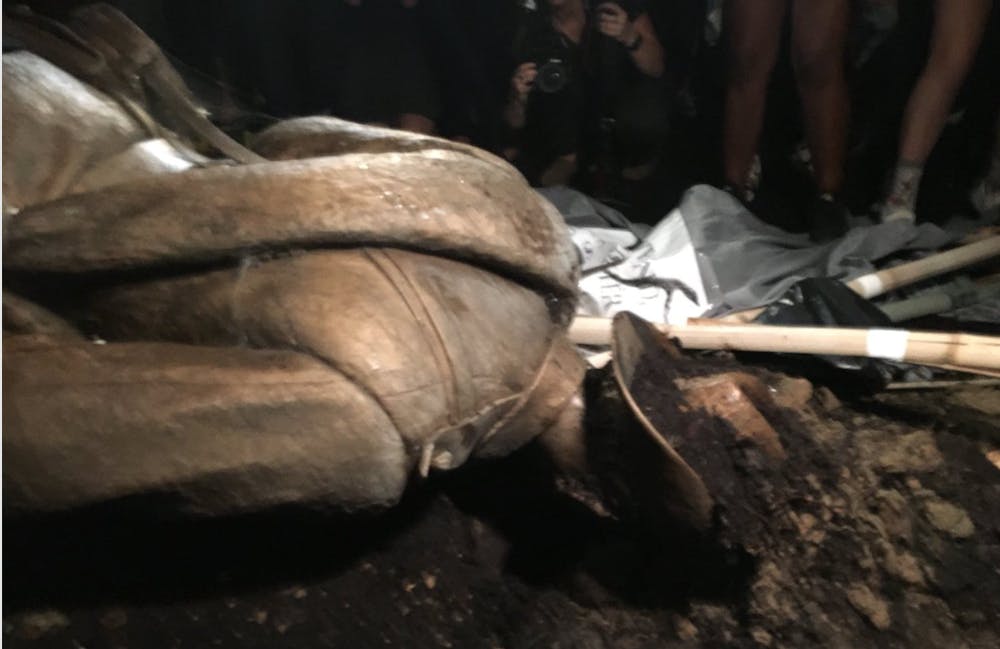Remember Kony 2012?
A 30-minute documentary produced by Invisible Children, Inc. that spread like wildfire across social media, it was for many of our generation a first brush with activism and advocacy. Though the film has since been criticized for oversimplification of the complex issues, promotion of “slacktivism,” and even some misinformation, its accessible form also undoubtedly led to an exponential increase in general awareness of the issue, and even awareness of activism itself.
However, there’s a difference between making activism accessible and simply allowing people to avoid uncomfortable action. Buying an “I love boobies” bracelet doesn’t do much to cure breast cancer. And beyond uncomfortable action, it’s first and foremost about useful action. Of the $495,969 that The Keep A Breast Foundation raised in 2008, only $6,723 went to breast cancer awards and grants.
Yet, it’s easy to slip into these forms of slacktivism; they’re safe and yet you often still receive the glory of being “woke.” Junior Tyler Lian, current vice president of the Asian Students Association, said to me, “there’s this conflation of wokeness where people label themselves as activists and then forget that to be an activist, you actually have to act and organize.”
Today, I’m thinking of the members of Duke’s Afro-American society who occupied the Allen building 50 years ago in demand of increased support and protection for black students, who faced tear gas from police. I’m thinking of the students who, in 2016, similarly occupied the Allen building to protest Tallman Trask III, and were threatened with disciplinary action. I’m also thinking of the students who, more recently, took the stage in front of hundreds of alumni to demand administrative action from President Price. As the corporate world says, “Big risk, big reward”... and in institutions like Duke, sometimes we are forced to take these risks just to get basic acknowledgement.
When they’re not taking place on our campus though, protests can often feel removed from our daily lives—we all acknowledge that Duke is a bubble. Maybe that’s why I’ve had multiple conversations with students here where they rationalize political apathy with the amount of schoolwork they have. This doesn’t sit quite right with me; the whole idea seems counterintuitive. When I ask people why they want to be insert whatever career here, the universal sentiment is always “Because I want to help people.” So, we study for these exams and write these papers so that eventually we can graduate and adopt those professional roles. But if our mission is ultimately to help people, why not start now?
Lindsay Ayling, a graduate student at UNC Chapel Hill who has played an active role in the movement to remove Silent Sam, addressed this idea in the context of the history department at UNC when she spoke with me.
“A lot of historians study social issues, like racism or sexism or fascism,” she said. “And I don’t know how you can study those issues without also realizing the incredibly high stakes and feel a call to oppose violent ideologies in your own time.”
I admire the labor and bravery of activists, protestors, and organizers greatly. I also acknowledge that the activism space can be intimidating. I haven’t been as involved with student activism on campus as I want to be, but something I’m learning now as I get more involved is that it shouldn’t be so intimidating.
We can all think of tons of reasons why we’d feel uncomfortable with protests and activism in general. I know I’m definitely not eager to put myself in a position where I’m given trespass notices or arrested or have even more severe actions taken against me. But when it comes down to it, those who attend protests don’t do so because they’re not also afraid of the repercussions...they do so because their anger and proximity to the issue outweigh their fear.
These people who do show up often tend to be people of color or first-generation, low-income students, who often have so much more at stake. When people don’t get involved with activism in its varying forms (there’s more to it than just protests), it’s not simply because activism itself is uncomfortable—it’s the act of confronting your own privilege and your own complicity that is the true source of discomfort.
This also implies that if you are physically able to participate in these demonstrations, it is all the more reason for you to actually do so. Ayling spoke to this privilege: “It is much more of a risk for non-white people to counter protest so I would never judge somebody who wouldn’t come to a counter demonstration.”
As a result, those who are capable ought to step up. In the case of efforts to remove Silent Sam, it was people who did not have as large of a reason to fear white nationalists at demonstrations as their black peers. Ayling said, “white academics have a duty to oppose white supremacy on the streets if they can.”
We’re nearing the 50th anniversary of the first Allen building sit-in, and I’m already beginning to see flyers for commemoration events. This university tends to celebrate activism from a distance, making it more palatable to the institution that fights it when it is actually taking place. Just two weekends ago, I was struck by the irony that the same people so excited to see speakers invited for Martin Luther King Jr. Day also call protests today futile and disruptive.
Protests were never made for institutions that prioritize law and order. It's impossible for protest to be “popular” in these spaces. Yet, this university’s history was shaped by protest itself, and we are far from being finished.
Emily Liu is a Trinity junior. Her column runs on alternate Fridays.
Get The Chronicle straight to your inbox
Signup for our weekly newsletter. Cancel at any time.

